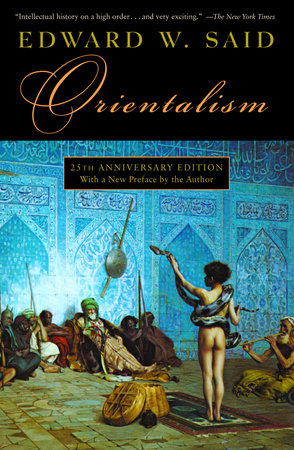TL;DR
Edward W. Said's "Orientalism" critiques how Western perceptions shape the understanding of Eastern cultures, arguing that these viewpoints serve to reinforce colonial power dynamics and hinder genuine representation.
What is Orientalism about
"Orientalism," first published in 1978, explores the historical and cultural conceptualizations of the East by the West, particularly during the period of European colonialism. Edward Said argues that Western portrayals of Eastern societies are not only distorted but also serve to affirm Western identity and superiority. This book examines the interplay of culture and power, illustrating how the West has historically defined 'the Orient' as a counterpart to itself, often depicting it as exotic, inferior, and in need of Western intervention. Said's critique remains relevant, as it calls for a more nuanced understanding of cultural interactions and the importance of allowing Eastern voices to represent themselves.
Orientalism 8 Key Takeaways
Colonial Legacy
Said highlights how colonialism has shaped Western perceptions of the East, perpetuating a narrative where the Orient is seen as 'the other,' reinforcing stereotypes that persist today.
Cultural Construct
He defines Orientalism as a created body of knowledge that reflects Western attitudes rather than the realities of Eastern societies, thus illustrating the power of representation in shaping perceptions.
Power Dynamics
The book discusses how Western portrayals of the East serve to validate Western superiority, positioning the East as weak, mysterious, and feminine compared to the strong, rational West.
Intellectual Critique
Said critiques the academic study of the Orient, arguing that much of it is rooted in political motivations rather than genuine inquiry into Eastern cultures.
Impact on Identity
The process of defining the Orient has implications not only for politics but also for Western identity, as it allows Europeans to affirm their own cultural self-image.
Art and Literature
Said examines how various forms of art and literature have contributed to and perpetuated Orientalist stereotypes, influencing public perception and policy.
Continued Relevance
Decades after its publication, the insights of "Orientalism" continue to be crucial for understanding contemporary global relations and cultural representations.
Call for Authentic Representation
The book advocates for Eastern cultures to be allowed to speak for themselves, challenging Western narratives that often misrepresent them.
Top Orientalism Quotes
- "Orientalism is never just a matter of the East; it is a way of thinking that shapes the West's identity and relationships with the rest of the world."
- "The Orient is not a free subject of thought, but a constructed image that reflects Western desires and fears."
- "To understand the Orient, we must first understand how the West has defined and dominated it through representation."
Who should read Orientalism?
"Orientalism" is ideal for readers interested in cultural studies, post-colonial theory, and political history. Academics, students, and general readers alike will benefit from Said's insights into how cultural narratives shape global perceptions and identity, stimulating critical thinking about the representation of marginalized cultures.
Orientalism Best Reviews
- "A seminal text that continues to challenge our understanding of cultural representation and power." – The New York Times
- "Said's work is as relevant today as it was at its inception, opening readers' eyes to the complexities of East-West relations." – The Guardian
- "An essential read for anyone interested in the intersections of culture, politics, and identity." – Journal of Cultural Studies
People also liked these summaries
Orientalism FAQs
What does Said mean by Orientalism?
Said defines Orientalism as a lens through which the West perceives and represents the East, often in ways that affirm Western superiority and power dynamics.
Is "Orientalism" accessible for general readers?
While some sections may be dense, the core arguments of the book are accessible to general readers interested in understanding cultural representations and their implications.
What impact did "Orientalism" have on cultural studies?
Said's "Orientalism" revolutionized cultural studies by challenging established notions of representation and power, becoming a foundational text in post-colonial discourse.
